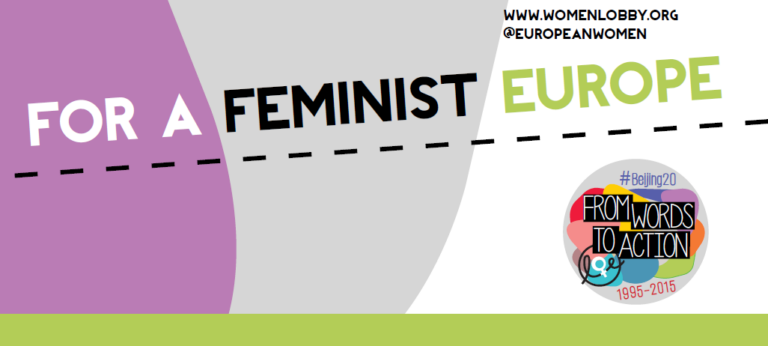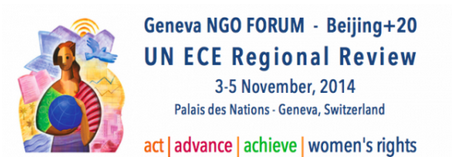[Brussels, 21 March 2011] Oxfam International & VSO outline the key priorities of UN Women and propose how the agency should proceed to deliver tangible progress at country level in a paper “A blueprint for UN Women – what does civil society at country level expect from the new UN Women’s Agency”
EXECUTIVE SUMMARY
The foundation of UN Women provides a historic opportunity to transform the lives of women
and girls. To deliver results, UN Women must target the most urgent issues for women and
absorb the lessons of the past. As it becomes operational, UN Women should build these
priorities and new approach into its structures and systems. This report focuses on the views
of 100 selected civil society organisations (CSOs) working on women’s issues on the ground.
It aims to outline the key priorities for UN Women and to propose how the agency should
proceed to deliver tangible progress at country level.
What should UN Women focus on?
The overwhelming priority that UN Women must address is violence against women (VAW):
99% of respondents said urgent action is needed on this issue and 72% selected it as a top
priority for UN Women. Women in all regions suffer multiple forms of violence and 10% of
respondents said it is increasing in their countries. All forms of violence against women must
be eradicated. But other issues are also important and these are linked. The choice of
priorities indicates fundamental gaps regarding the implementation of women’s rights at
country level. Next to the priority for UN Women, there is a second tier of three issues
selected as key priorities. These are women’s access to decision-making (42%), access to
reliable justice systems (41%) and economic empowerment (41%). A clear overall message
from the survey was that there is an urgent need to raise women’s awareness of their rights.
Who should UN Women focus on?
We asked CSOs for their view on which women need help most urgently and 84% said rural
women are the group in greatest need. UN Women should make rural women a priority
because they have fewest resources and are least aware of their rights. Our survey found
disabled women (61%) and uneducated women (61%) also need urgent attention. The needs
of these groups intersect but UN Women should not take a ‘one size fits all approach’ but
tailor specific interventions to target individual groups.
How should UN Women operate at country level?
UN Women must be in touch with the needs of women at grassroots. The survey revealed a
perception among 30% of CSOs that UN agencies lack knowledge of the daily realities of
women on the ground and are not visible to the groups striving for the same goals. There is a
strong wish among CSOs to collaborate with the UN as genuine partners: 94% of
respondents said they want to work in partnership with UN Women. CSOs have clear ideas
as to how this partnership might work: they want UN Women to call on their expert
knowledge and to use its access to governments to open up spaces for them to participate in
decision-making at national level. Many support UN Women’s collaboration with
governments: 66% of respondents want UN Women to work with governments but they want
it to strive for more independence than UN agencies in the past: more than a quarter (28%)
of CSOs said the UN is too close to national governments and many felt this close
relationship is hindering progress.
Recommendations
This survey and report collect the views of civil society on the task ahead for UN Women.
The research enables us to formulate some recommendations as to how UN Women should
proceed at country level. As it is created, the agency should build its work around the key
needs of women:
- VAW must be the main priority for urgent action, directly and as a thematic issue. UNW
should work towards a comprehensive action plan to tackle VAW in all its forms,
including setting binding targets and timetables, with a specific focus on country level. - UN Women should focus on rural women and ensure its programmes are tailored to fit
specific groups, such as disabled or uneducated women, to maximise impact. - UN Women should adopt a different approach to working at country level to UN
agencies in the past. Its approach should be transformative, leading to actual change.
UN Women must develop transparent strategies, and best practices on priorities and
key issues highlighted in this survey. These need to be made visible at country level. - It should engage with civil society as genuine partners at country level, calling on the
experience of CSOs and opening spaces for them to participate in decision-making at
national level. The creation of UN Women should signal a departure from the practices
that left CSOs feeling marginalised in the past. - UN Women needs to examine its relationships with governments at country level to
ensure that governments deliver on their commitments to women’s rights. In the past,
the way in which the UN has worked with governments has been a source of tension
with civil society. UN Women should use its access to governments to open up spaces
for CSOs to play a part in strengthening women’s rights and promoting gender equality
in their countries. Survey participants want UN Women to work with their governments
but the new agency should strive for more independence so that progress on women’s
rights and gender equality remain the key focus of its work.
Download the full report: http://www.oxfam.org.uk/resources/policy/gender/downloads/blueprint-for-un-women-230211-en.pdf


